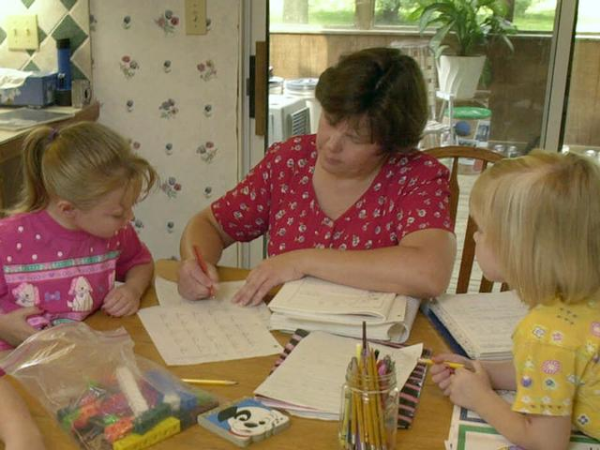There are a number of reasons for why parents may choose to homeschool, and they are generally very personal reasons. Homeschooling is a major decision, and a life changing one. It takes a genuine commitment, and it is certainly not for everybody. Here are some things you should consider when determining whether or not homeschooling is right for you and your child:

Time. Do you have the time to do it? If not, are you willing and able to switch your schedule and lifestyle around in order to make the time to do it? While it is true that you can drastically reduce instruction time when you homeschool (as opposed to putting your child into a classroom setting), it is also important to remember that in addition to having time to instruct, you will also need to put ample time into researching for lessons, planning projects, etc.
Patience. Not everyone has the right personality for homeschooling. It takes a lot of patience to teach, learn the things that you need to teach, and help a child form associations with new content. Additionally, it’s not unusual for children to misbehave more in front of their parents than they might in front of a teacher at school, so you may also need plenty of patience for dealing with a child who simply is not interested in learning something you must teach.
Knowledge and skill. Teachers go to school for years to learn how to perform in their positions. Unless you have a degree in education or comparable experience, you might not be equipped with the knowledge and skill necessary to teach children. However, if you are a natural at teaching and you have a firm understanding of what it takes to teach, then you may make a great homeschool teacher.
Socialization. This is a common concern for people considering homeschooling, and there is a lot of debate over whether or not homeschooled children can be properly and amply socialized. There is no right answer, as it really comes down to what socialization opportunities you are willing and able to provide for your children. School isn’t necessary for socialization, but social experiences are. Fortunately, there are ways to provide those experiences without sending your children to school, including clubs (Girl Scouts and Kiwanis, for example), community sports teams, lessons (music, dance, art, etc.), religious affiliations, and play groups.
As you can see, the decision to homeschool is a complex one, and you much approach it from many different angles. Consider all of these factors to determine if you and your child would be best served by the homeschooling experience.
About the Author: Elwood Hoffstetter works from home and homeschools his elementary aged daughter. When she is a teenager, he’ll give her the choice of continuing homeschool or going to a public school. He occasionally hires Falls Church tutors to help his daughter with subjects she struggles with, both to reduce stress in the household and to expose her to other teaching styles.

